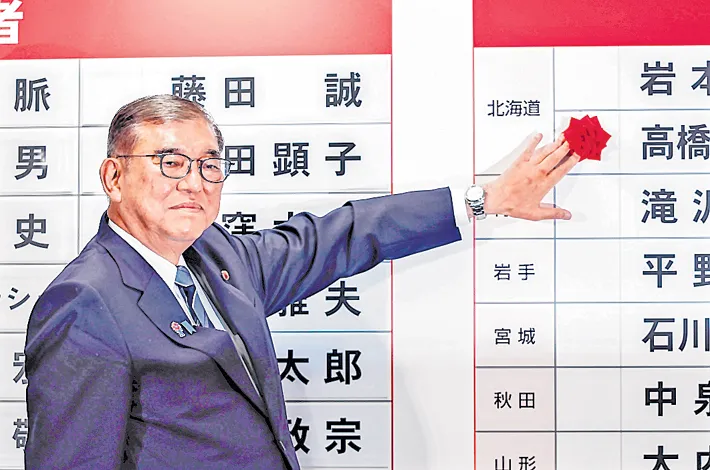Japan PM Ishiba refuses to quit after poll defeat
22-07-2025 12:00:00 AM

AP Tokyo
Japanese Prime Minister Shigeru Ishiba said on Monday he will stay in office to tackle challenges such as rising prices and high US tariffs after a weekend election defeat left his coalition with a minority in both parliamentary chambers and triggered calls for his resignation.
Ishiba's ruling Liberal Democratic Party and its junior coalition partner Komeito were three seats short in maintaining a majority in the 248-seat upper house in Sunday's vote. Though the LDP is still the leading party, its ruling coalition is now a minority in both houses of the Diet, or parliament, which makes it difficult for the coalition to pass any legislation.
The loss of a majority in Sunday's election does not immediately lead to a change of government because the upper house lacks power to file a no-confidence motion against a leader. With opposition too fractured to form a united front powerful enough to topple the ruling coalition, Ishiba is under more pressure to step down from ultraconservative rivals in his own party.
Ishiba said he takes the result seriously but that his priority is to avoid creating a political vacuum and to tackle impending challenges, including the Aug 1 deadline for a tariff deal with the US. "While I painfully feel my serious responsibility over the election results, I believe I must also fulfil my responsibility I bear for the country and the people so as not to cause politics to stall or go adrift," Ishiba said.
"Challenges such as global situation and natural disaster won't wait for a better political situation." His chief tariff negotiator, Economic Minister Ryosei Akazawa, is heading to Washington for his eighth round of talks. The prime minister hopes to reach a mutually beneficial deal and meet with US President Donald Trump "as soon as possible," he said.
Sunday's vote comes after Ishiba's coalition lost a majority in the October lower house election, stung by past corruption scandals, and his unpopular government has since been forced into making concessions to the opposition to get legislation through parliament. It has been unable to quickly deliver effective measures to mitigate rising prices, including Japan's traditional staple of rice, and dwindling wages.








